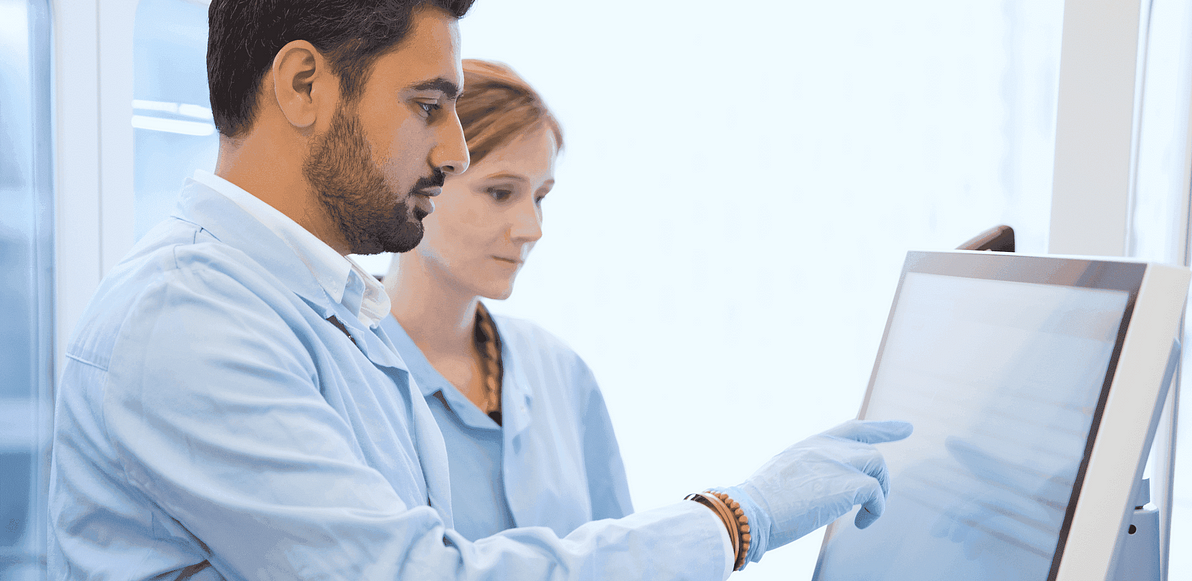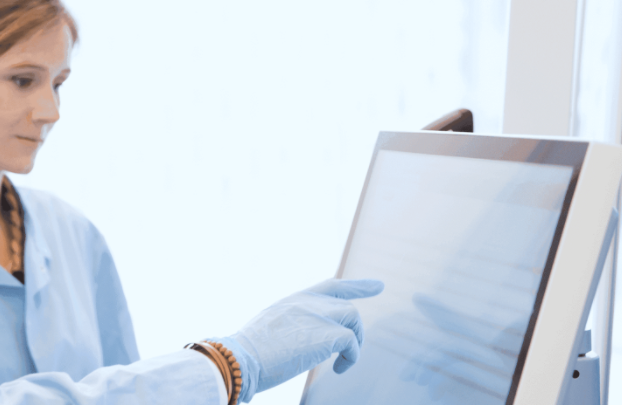Digital health solutions combine healthcare expertise with technology
diagnosticsroche.com
10.03.2022
Executive Summary
by Joaquim Cardoso MSc.
Chief Editor of “The Health Strategy Institute Blog”
@ The Digital Health Unit
March 14, 2022
What is the opportunity? What are the challenges?
- It’s clear that “diagnostic testing has become indispensable for diagnosing and monitoring disease, for providing prognoses and for predicting treatment response.”
- Managing operational health data across healthcare settings is also essential for making more reliable, informed decisions.
- Yet combining information efficiently from disconnected, diverse sources and locations persists as a significant challenge.
What are the solutions?
- With tools such as data analytics, machine learning and integrated platforms, digital health solutions may help unlock the full power of data both within the lab and externally.
- The hope is that new digital technologies can accelerate turning that data into insights.
What is the current digital adoption rate in healthcare?
- Today only 15% of healthcare organizations worldwide are fully equipped to make quick data-driven decisions.
- Some experts are predicting that, on average, it will only take another six years for the emerging digital technologies to replace many traditional delivery and business models in healthcare.3
What are the barriers?
- Lack of integrated infrastructures and information silos remain key barriers to digital transformation of healthcare.
Other barriers include
- incompatible systems/data/workflows,
- insufficient funding,
- concerns about security, and
- lack of analytic skills and/or
- lack of the right technology infrastructure.
Challenges undoubtedly exist, still the world is only at the beginning of realising the full value of diagnostics and the vast potential of digital solutions in the lab and beyond.
What is the importance of aligning technology with healthcare solutions?
- Simply adopting new technologies is not enough to deliver a seamless digital experience anywhere. In healthcare, it also requires the safe and secure use of information in alignment with data privacy rules as well as complex, evolving government regulations
- Effective digital health solutions combine healthcare expertise with technology
- Getting the right diagnostics, to the right patient, at the right time is essential.
- A clinical decision support solution that is centered on collaboration and data sharing ensures a patient-centric approach.
What are the possibilities for the future of healthcare?
- The digital transformation underway offers enormous possibilities to improve health outcomes for patient care, connecting lab, clinic and home settings.
- As knowledge in medicine and science grows, digital solutions, such as clinical algorithms that incorporate national guidelines, are making it easier to connect and analyse vast amounts of data in new ways.
- The results are helping physicians gain a deeper understanding of disease biology and its expression in individual patients.
The ultimate goal:
- to bring about confident healthcare decisions linked to outcomes over time for long-term (longitudinal) disease management for the benefit of patients’ and physicians.
ORIGINAL PUBLICATION (full version)

It’s clear that “diagnostic testing has become indispensable for diagnosing and monitoring disease, for providing prognoses and for predicting treatment response.”1
Managing operational health data across healthcare settings is also essential for making more reliable, informed decisions.2
Yet combining information efficiently from disconnected, diverse sources and locations persists as a significant challenge.
It’s clear that “diagnostic testing has become indispensable for diagnosing and monitoring disease, for providing prognoses and for predicting treatment response.”1
Managing operational health data across healthcare settings is also essential for making more reliable, informed decisions.2
Yet combining information efficiently from disconnected, diverse sources and locations persists as a significant challenge.
With tools such as data analytics, machine learning and integrated platforms, digital health solutions may help unlock the full power of data both within the lab and externally.
Some experts are predicting that, on average, it will only take another six years for the emerging digital technologies to replace many traditional delivery and business models in healthcare.3
With tools such as data analytics, machine learning and integrated platforms, digital health solutions may help unlock the full power of data both within the lab and externally.
Some experts are predicting that, on average, it will only take another six years for the emerging digital technologies to replace many traditional delivery and business models in healthcare.3

The challenge of turning data into meaningful insights
Data — and the ability to turn that data into meaningful insights — holds great promise for informing physicians
- to enable the delivery of better health outcomes,
- disease management and
- the operational performance of labs and hospitals.
The hope is that new digital technologies can accelerate turning that data into insights.
Yet today only 15% of healthcare organizations worldwide are fully equipped to make quick data-driven decisions.
The hope is that new digital technologies can accelerate turning that data into insights.
Yet today only 15% of healthcare organizations worldwide are fully equipped to make quick data-driven decisions.
Lack of integrated infrastructures and information silos remain key barriers to digital transformation of healthcare.
Other barriers include incompatible systems/data/workflows, insufficient funding, concerns about security, and lack of analytic skills and/or the right technology infrastructure.4
Lack of integrated infrastructures and information silos remain key barriers to digital transformation of healthcare.
Other barriers include incompatible systems/data/workflows, insufficient funding, concerns about security, and lack of analytic skills and/or the right technology infrastructure.4
Labs are constantly seeking ways to optimize diagnostic testing and reduce operational costs while finding new valuable offerings for improving healthcare outcomes and elevating their pivotal role in the healthcare system.
This increased visibility from digital solutions and analytical tools can guide lab leaders in the decision-making process as they move towards optimizing operations, customer delivery, and overall lab performance in a targeted and efficient manner.

Digital health solutions combine healthcare expertise with technology
With digitalization in healthcare, the work starts by asking: “How can technology be used to improve quality of care for patients and healthcare organizations?”
This is particularly important as labs and hospitals use technology to connect and manage datasets and instruments efficiently within the lab and externally with devices in doctor’s offices or patients’ homes.
Yet simply adopting new technologies is not enough to deliver a seamless digital experience anywhere. In healthcare, it also requires the safe and secure use of information in alignment with data privacy rules as well as complex, evolving government regulations.
When applying digital solutions, a deep understanding of science, medicine, and patient workflows across the entire healthcare journey is also beneficial.
Yet simply adopting new technologies is not enough to deliver a seamless digital experience anywhere. In healthcare, it also requires the safe and secure use of information in alignment with data privacy rules as well as complex, evolving government regulations.
At Roche we have deep experience in in-vitro diagnostics, and in healthcare overall, including pharmaceuticals, for 125 years.
Our deep network of medical expertise with labs and patients spans the globe, and we have been applying our technical and digital expertise in lab automation and software for the past 30 years, primarily for operational efficiency.
Now we look to a new future in care by helping labs connect externally to wherever healthcare is delivered to patients.
Through digital solutions and analytical tools, decision-making and care coordination can be optimized to benefit patients at every stage of their healthcare journey.
Examples of these digital health solutions include but are not limited to diagnostic algorithms and clinical decision support, provided on robust technical infrastructure and platforms.
Challenges undoubtedly exist, still the world is only at the beginning of realising the full value of diagnostics and the vast potential of digital solutions in the lab and beyond.
Harnessing that full potential of advanced data, digital infrastructure and clinical insights — Roche — working in partnership with other leaders — aims to put its expertise to use and help healthcare systems transform.
Most importantly, these advances will help everyone move one step closer towards improving patient lives.
Challenges undoubtedly exist, still the world is only at the beginning of realising the full value of diagnostics and the vast potential of digital solutions in the lab and beyond.

The possibilities for the future of healthcare
The digital transformation underway offers enormous possibilities to improve health outcomes for patient care, connecting lab, clinic and home settings.
As knowledge in medicine and science grows, digital solutions, such as clinical algorithms that incorporate national guidelines, are making it easier to connect and analyse vast amounts of data in new ways.
The results are helping physicians gain a deeper understanding of disease biology and its expression in individual patients.
The ultimate goal: to bring about confident healthcare decisions linked to outcomes over time for long-term (longitudinal) disease management for the benefit of patients’ and physicians.
The digital transformation underway offers enormous possibilities to improve health outcomes for patient care, connecting lab, clinic and home settings.
Roche, with its deep expertise in healthcare, is helping labs and hospitals make those connections a reality with the goal to push the right lab data — at the right time with the right application — for the benefit of patients.
Going forward, our ability to capture and understand unprecedented amounts of data from multiple sources will allow for a more in-depth view of each patient, thus putting the promise of truly personalised healthcare within reach.
Digital assets centered on patient engagement
Roche also is committed to offering digital assets and patient-centric management solutions in developing regions with high disease burdens.
In regions with high incidence of malaria, for example, Roche works closely with local partners and governments to ensure individuals can receive timely diagnostic results, remain adherent to treatment and engage in care through education and mobile reminders.
This enables personalized healthcare at scale and helps reduce the socioeconomic burden on such health systems.
At the same time, providing clinicians and other stakeholders direct access to a digital data platform allows them to address key clinical workflow issues.
Getting the right diagnostics, to the right patient, at the right time is essential.
A clinical decision support solution that is centered on collaboration and data sharing ensures a patient-centric approach.
Roche works in partnership with labs and hospitals — and with startups and other companies — that share our focus and commitment to improving outcomes for both patients and healthcare systems.
Getting the right diagnostics, to the right patient, at the right time is essential.
A clinical decision support solution that is centered on collaboration and data sharing ensures a patient-centric approach.
Originally published at https://diagnostics.roche.com.
References
See the original publication












